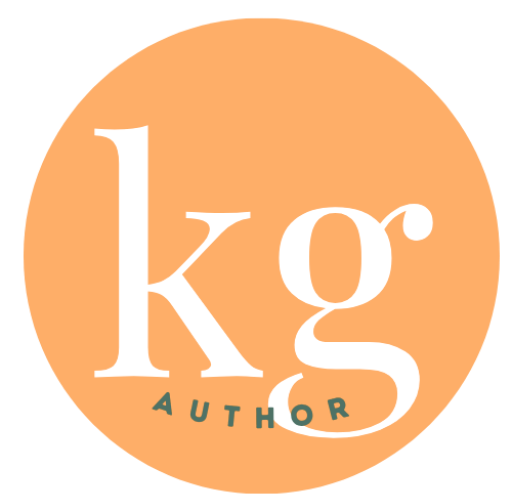Three Research Practices To Make Your Writing Authentic and Powerful
I was listening to “The Bible in One Year” with Nicky Gumble, reading through Joshua. A verse mentioned the twelve stone memorial for crossing the Jordan and said- “It is still there.”
It is? I thought – look it up. I went to the bookshelves in my office and found Everyday Life in Bible Times and thumbed through it.
Why Research?
I was transported into another office in the past – my step-father, Bud’s. Another set of bookshelves. The golden yellow pine floors are worn by the wheels of an office chair scooting from desk to shelves. Bud had an open-door policy in his office. At any time he was working, I could go in and ask a question. “Let’s look that up,” he would say even though he usually knew the answer. He pulled resource books off the shelf and we dove into finding answers. Maps. Photographs. Paragraphs. Pages. Explanations. Debates. And when we were finished, I left knowing I would be back with another question another day.

Practice Your Gift of Research
I didn’t know at the time what a gift I had been given. The gift of learning. The gift of research. The gift of looking it up. Years later, the gift became a habit and a joy. I passed the habit on to my kiddos.
What does research have to do with writing?
Everything. Every writer must research. No matter what the topic. One of the gifts of research is our lives, our experiences. We can delve into the timeline of our lives when researching a topic. For instance, if you are writing an article entitled “Three Practices to Implement In Order To Grieve Well.” One of the ways you can research is by remembering your own grief when it was the most overwhelming. Your three ways may be born from your own experience. Your life experience gives you the gift of research. Your story has paragraphs, pages, and chapters full of information. The first stage of research begins with your personal experience. Otherwise, the topic you are writing about wouldn’t be authentic.
Our stories matter… Your stories matter… for you just never know how much of a difference they make and to whom…
Caroline Joy Adams
We all remember those reports we typed up in our school days full of facts and quotes from sources we gleaned in order to support the statement we made in our first paragraph. Often the statement our teacher had given us. Sometimes we had a strong opinion on the statement, other times we just wanted to write an “A” paper.
Writing a well-informed article isn’t about showing off your intelligence. It’s about offering a transformation.
And we’ve all read articles online (or attended webinars, meetings, etc) that droned on fact after fact. And don’t get me started on the webinars/articles by tech guys who drone on in a monotone voice giving you facts when you showed up to learn something. They don’t share examples. Stories. Maybe they’ve never struggled with setting up a website and you’re sitting there saying, why can’t you share something like when I tried to set up an embedded ____, I struggled with the Html code (insert laughter). But I overcame and learned that you must do x, y, and z.
I may be speaking from personal experience – attending a webinar to learn something (looking for a transformation) and leaving it frustrated. What I did learn -the host is a bazillion times more intelligent than I am in the area of x. What I didn’t get is the transformation I desired. Read that again. I had a personal experience I just shared with you. What did I want from the webinar – a specific transformation – personal stories and facts – not just facts.
When people read your article, series, or book, what they are looking for is transformation. How does your article benefit them? Did you have a transformation? What they don’t want is a list of facts. While this article is on the importance of research. The heading of this section is research is a gift. Facts are only part of the research. Make sure your articles are not a showcase of your intelligence on a particular topic. (I’m going to have to google what I needed to learn from that webinar.)

Infuse Research Into Your Writing
As I said in the previous point, you can begin your research with your life experience. The truth is what you are writing about will stem from your experience. What you have
- Struggled with
- Overcome
- Learned from
Start there.
You don’t need to be an expert on a topic in order to write about it
Don’t think you need to know all there is to know on a topic before you write about it. You may know more than you think.
For example, I could write an article – “Three Immediate Steps You Can Take When Diagnosed With Celiac Disease.”
I would start with my personal experience. I remember standing at the kitchen island, talking to the nurse on the phone as she read me my lab results. “You’re positive for celiac.” Then my initial panic. I lifted my arms from the counter, poison breadcrumbs lived there. Next, I could move on to the three steps I took – Clean out the pantry. Clean all the counters and appliances with vinegar. Find a cookbook or recipes to get you started.
Read. A. Lot.
Next in my celiac journey, I read A LOT. Everything I could get my hands on about Celiac disease, how to cook gluten-free, avoid cross-contamination, etc. You get the point. But the cool thing about reading books to help YOU with whatever you are overcoming or struggling with is that information will come back to mind when you are writing. Just thinking about an article you want to write will pull phrases and concepts to the forefront of your mind. When I think of my journey with Celiac – I automatically think of:
- Elizabeth Hasselbeck’s book (Deliciously G-Free)- where I learned you can still eat the food you love in a new way
- Cooking for Isaiah -where I learned to make my own flour mix
- Gluten-free On a Shoestring– where learned a biscuit mix to ensure I could still make the family’s favorites – chicken potpie and Christmas sugar cookies
The more ideas you file away in your mind, the faster you’ll be able to write. That’s because good writing is built on good ideas. … This is why you should become an idea collector. When you read, underline passages that catch your attention. Save linke to stories that you think you may be able to use someday.”
Speed Writing For Nonfiction Writers
My point- when you begin an article, don’t think you need to read Ten books first. You may have already read the books. Now you need to pull them out and plug them in. This brings me to my third practice….

Start With The Quotes/Facts Or Add Them Later
You can add your quotes after you finish your first draft (sloppy copy). If you take the advice given in the last point – read. A. Lot. You’ll be amazed how many ideas, thoughts, facts, and yes, quotes will come to mind while you are writing. Instead of grabbing your kindle or the physical book, type (quote here) and the source while you are writing. Later when you are revising the article, look up and add the actual quote.
While I was typing my little section on the books I read/use on Celiac Disease, I spelled Elizabeth’s last name incorrectly. I could have walked to the kitchen and pulled her book off the shelf to make the correction. I didn’t. Do you know why? You don’t research while you are writing. Writing is not research. Writing is writing.
Another way of adding research is starting with quotes or facts. Add the ones you would like to use to a blank document and build your article around them. Both are time-saving and great habits. This practice is better for a topic you feel strongly about but don’t know a ton about it. Maybe you’ve read a bit and have an inkling about what you want to say, but you need some backup. You want to make sure you’re on the right track. You want to share practical advice and encouragement with some facts and research to back up what you are saying.
Create a plan so that you know what you’re going to write before you write it.
Speed Writing For Nonfiction Writers
Books you have already read will come to mind.
While I’ve been thinking about this article and my practices, books I’ve read and reread are coming to mind. I remember points from them, not the exact quote. That’s okay. I pulled out Speed Writing For Nonfiction the other day. I’ll find some quotes in it later to add to this article.
How can I know this book has quotes to back up what I’m saying? I’ve read the book at least three times. Now that I have it out, I will probably read it again to remind myself of the habits and practices I need, not solely for this article. So, in a long-winded way, what I’m saying, the more familiar you are with a topic, the easier it is to have a sense of what quotes you need to add to authenticate what you are saying. Just remember, you are the writer. You are crafting an authentic story with courage. Not a list of facts. You are the expert.
Looking for more sources?
WordPress recommends:
First, think about the key elements you need to support your claims. Some common tools include the following:
- Stats and data from reputable sources
- Popular articles on the same topic
- Quotes from experts and authoritative sites
Research Practices In A Nutshell
Remember, research is a gift. You can find facts in a book on your library shelf, or on the internet. But the most valuable resource is you – your life experience. Start your research with the timeline of your life. Add personal stories to your writing and then back them up with facts or tips you have read (and lived). You don’t have to stop writing to go look something up. I highly recommend that you don’t. Just type in parentheses (look up quote in ________). Read a lot. I can’t emphasize this one enough. Read actual books not just short paragraphs someone has posted on their Instagram account. When you make it a habit to read on your subject matter, not only will you have a transformation in your own life- you’ll have one to offer your readers.
Feel free to add your quotes after you have finished your article. Or build an outline on a document with your quotes and then write your article. Whichever you choose, remember your readers are looking for a transformation. The reader wants to know how to overcome something. Share how YOU overcame. Or the reader may be looking for ‘How to” as in this article. How do you do that thing? Please don’t be like the webinar host/article author who doesn’t offer a transformation. Showing off your intelligence by peppering your writing with quotes, without personal stories, and no authenticity will turn readers/watchers off.
To finish off on a positive note – I know you can do it. It’s scary to “research” those personal stories about ourselves and share them with the world. But that’s what makes you the expert! Research your life experience and then add facts to back YOU up. Share a transformation and give your reader the steps to her own transformation.
other resources:
Five Reasons You Can Write A Nonfiction Book If You don’t FEEL like an EXPERT
Three Truths About Your Writing Weaknesses That May Surprise You
Three Steps to Journaling An Article
pin it:


